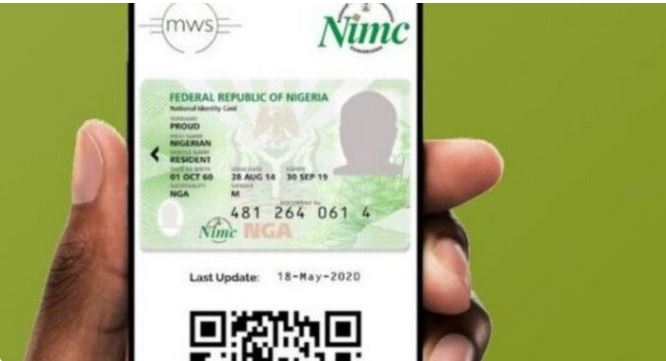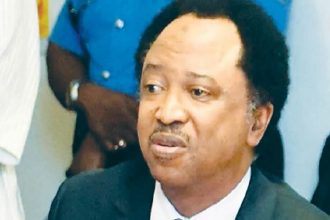The National Identity Management Commission has announced a target to improve service delivery by 30 per cent within the next year through its newly launched Service Charter.
The announcement was made during the official launch in Abuja on Tuesday, where the commission set out clear goals to enhance the efficiency and accessibility of Nigeria’s identity management system.
Represented by the Director of the Inspectorate and Enforcement Unit, Mr Elias Okafor, the Director-General of NIMC, Dr Abisoye Coker-Odusote, highlighted the commission’s commitment to improving service delivery nationwide.
Coker-Odusote stated that NIMC is committed to reducing waiting times for enrolment and card issuance by at least 30 per cent within the next 12 months.
“The charter is anchored on four key principles, whch include efficiency with a target to reduce average waiting times for enrolment and card issuance by at least 30 per cent within the next 12 months,” Coker-Odusote said, reiterating the commission’s determination to enhance the user experience and make identity services more efficient.
The NIMC has already made significant progress in the last two years, increasing the National Identification Number enrolment by 49 per cent and deploying over 6,000 functional enrolment centres nationwide, including in hard-to-reach rural areas.
The digitalisation of processes has also helped reduce the average time for enrolment and NIN issuance.
However, the commission acknowledged that more needs to be done.
“In the last two years alone, we have increased NIN enrolment by 49 per cent, deployed over 6,000 functional enrolment centres nationwide, including in hard-to-reach rural communities, reduced the average enrolment-to-NIN issuance time through digital process optimisation, and expanded real-time integration with over 40 partner agencies, including banks, telecom operators, immigration services, and pension administrators.
“Yet, we recognise that despite these significant strides, service delivery must become faster, more citizen-friendly, and more consistent across all locations,” Coker-Odusote said.
The NIMC Service Charter introduces several new initiatives, including the publication of quarterly performance scorecards to track enrolment figures, processing timelines, and service centre performance.
The commission also pledged to provide annual customer service and ethics training for all staff to maintain professionalism across all levels.
To further enhance accountability, a toll-free hotline, a Service Feedback Portal, and in-centre kiosks will be set up to resolve complaints within 10 working days.
These mechanisms will allow Nigerians to hold the NIMC accountable for its service delivery.
The NIMC’s new initiative is aligned with the Renewed Hope Agenda and Nigeria’s National Digital Economy Policy.
It aims to make identity services more accessible and technology-driven, further reinforcing the commission’s commitment to improving the country’s identity management system.
Coker-Odusote called for the active participation of citizens and partnerships with both public and private sectors to improve infrastructure, fund innovations, and ensure that services are reflective of the Nigeria that the people aspire to build.
Also speaking, the Acting National Coordinator, Mr Anthony Oshin, expressed gratitude to the Director of SERVICOM for the efforts in making the event possible.
He was represented by the Head of Operations at SERVICOM, Mrs Ngozi Akinbodewa.
Oshin noted that the Service Charter, developed over a period of three years, is a critical tool that will guide NIMC’s staff in delivering efficient services.
He also emphasised the importance of ensuring that the charter’s standards are met and performance is continuously monitored to ensure citizens experience real benefits from the reforms.









